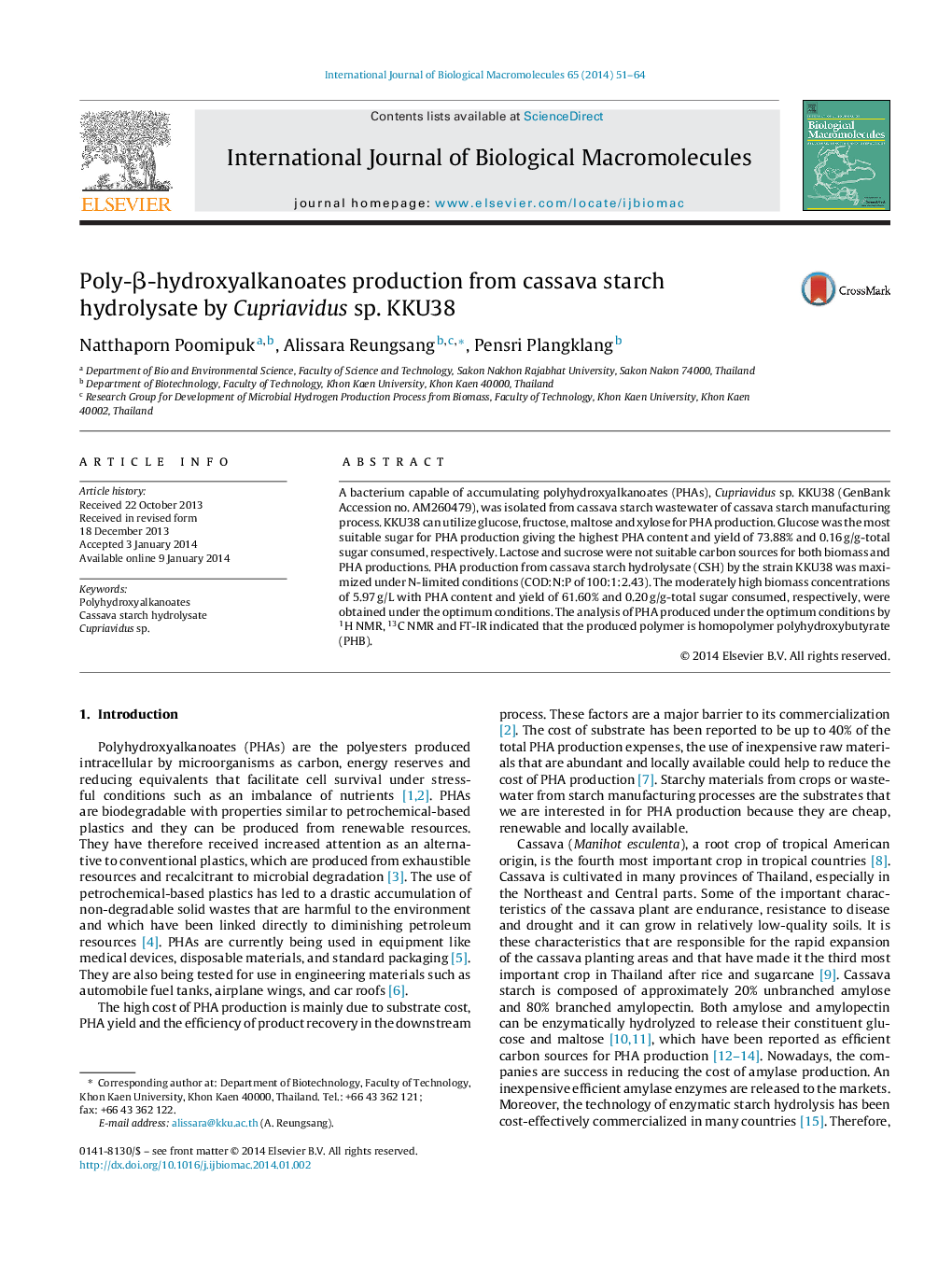| Article ID | Journal | Published Year | Pages | File Type |
|---|---|---|---|---|
| 1986518 | International Journal of Biological Macromolecules | 2014 | 14 Pages |
A bacterium capable of accumulating polyhydroxyalkanoates (PHAs), Cupriavidus sp. KKU38 (GenBank Accession no. AM260479), was isolated from cassava starch wastewater of cassava starch manufacturing process. KKU38 can utilize glucose, fructose, maltose and xylose for PHA production. Glucose was the most suitable sugar for PHA production giving the highest PHA content and yield of 73.88% and 0.16 g/g-total sugar consumed, respectively. Lactose and sucrose were not suitable carbon sources for both biomass and PHA productions. PHA production from cassava starch hydrolysate (CSH) by the strain KKU38 was maximized under N-limited conditions (COD:N:P of 100:1:2.43). The moderately high biomass concentrations of 5.97 g/L with PHA content and yield of 61.60% and 0.20 g/g-total sugar consumed, respectively, were obtained under the optimum conditions. The analysis of PHA produced under the optimum conditions by 1H NMR, 13C NMR and FT-IR indicated that the produced polymer is homopolymer polyhydroxybutyrate (PHB).
